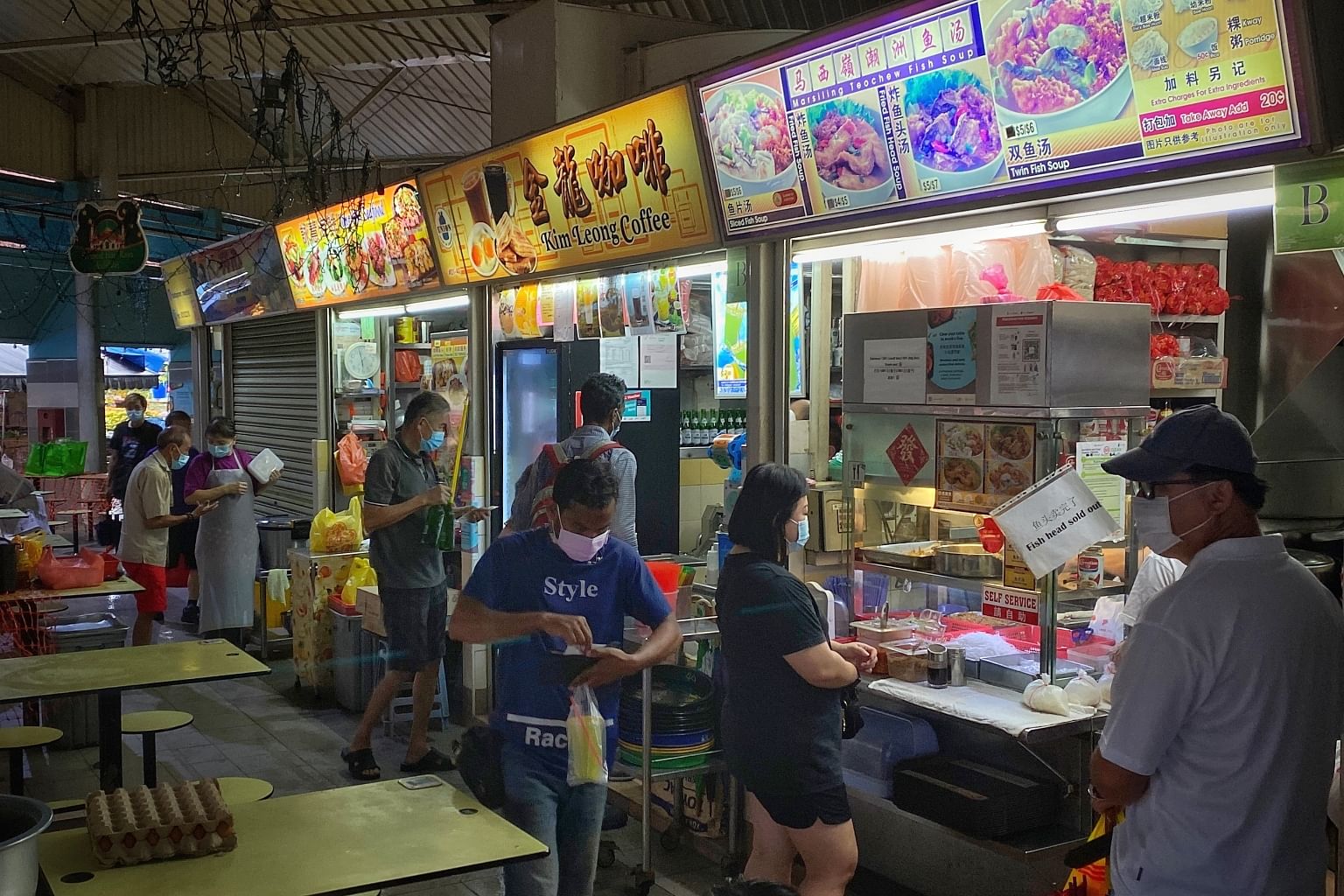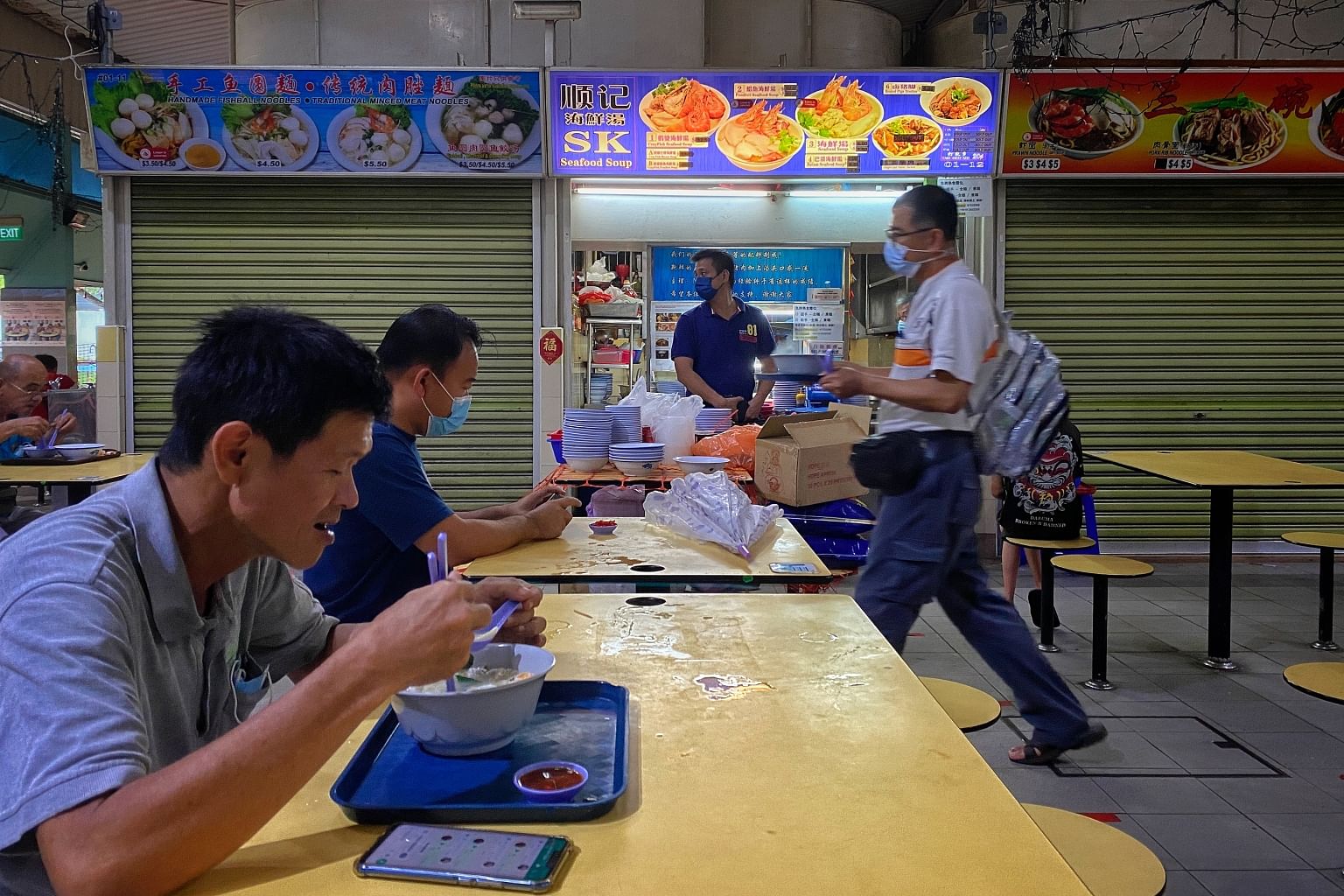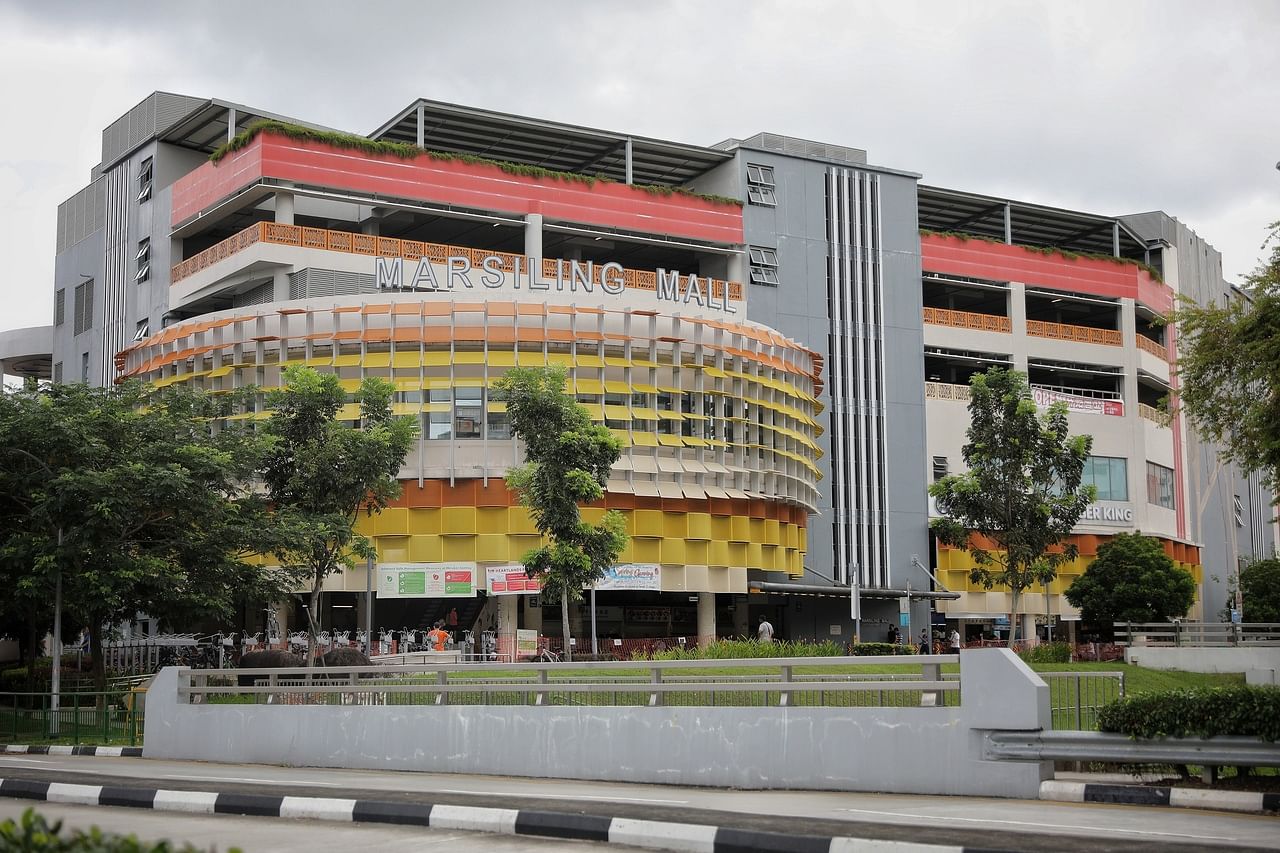Businesses near Causeway expect lifting of border curbs to boost takings
Sign up now: Get ST's newsletters delivered to your inbox

Business has dropped by about 50 per cent in the last two years since Covid-19 hit.
ST PHOTO: JASON QUAH
SINGAPORE - Hawkers near the Causeway are ordering more supplies in anticipation of getting more business from Malaysian workers on Friday (April 1) when border restrictions are eased.
But there is concern among some retailers that their local clients are likely to go to Johor Baru to shop, since prices are lower there.
From Friday, those who are fully vaccinated will be able to travel freely between Singapore and Malaysia by land without testing or quarantine. The move, announced last Thursday, means more people who live in Malaysia will be able to return to their jobs here.
The news is welcomed by Mr Lai Chee Hiong, co-owner of hawker stall SK Seafood Soup in Marsiling Lane Food Centre. "When I heard the news, I was so happy. I was jumping in celebration," he said.
He noted that business has dropped by about 50 per cent in the last two years since Covid-19 hit. More than half of his regular customers are Malaysian workers who have not returned since the pandemic began.
Come Friday, Mr Lai plans to purchase about 20 to 30 per cent more raw ingredients, including prawns and fish, in expectation of a bigger crowd.
"I really hope that business will improve and more of my Malaysian customers will come back for my seafood soup," said Mr Lai.
Over at Malay food stall Majijah, also located in Marsiling Lane Food Centre, Ms Bella Raihan is adopting the same strategy.
She typically buys about 75kg of chicken a day but plans to get 125kg on Friday. The stall sells dishes such as nasi ambeng, nasi briyani and mee rebus.
"We have been waiting for this good news for so long. It will be great to be able to welcome back Malaysian regulars whom we have not seen for the last two years," said Ms Bella who works at the stall owned by her mother.
Ms Elyn Suah, who runs a mobile phone shop a block away from the food centre, said she will open her shop earlier on Friday to cater to returning Malaysian workers, who typically purchase mobile top-up cards.
She used to start her business at 5am before the pandemic, but shifted to 7am in the last two years. She will open her shop at 6am on Friday and switch to 5am the following week if business improves.
At the Woodlands temporary bus interchange, stallholder Zainal Naleef, who sells prata and briyani, said: "The border reopening is a good thing. Usually a lot of Malaysians from across the border came over, and patronised my stall, especially for breakfast. I believe I will recover the loss of 20 to 30 per cent of business I experienced."

But the picture is more mixed just a short distance away in Marsiling Mall. Though many also expect an increase in customers from Malaysia, some businesses expect their Singapore customers to head to Johor Baru over the next few weekends.
Many stalls in Marsiling Mall were previously located in the Old Woodlands Town Centre. Before the move, they drew more patronage from Malaysians but have since pivoted to serving more locals.
Mr Alan Yip, who runs iMobile Hub selling phones and accessories in the mall, said: "I expect business to drop, as the Singapore dollar is much stronger than the Malaysian ringgit so things there are much cheaper.
"Singaporeans living here who patronise my shop will now go to Malaysia to spend their money, since it is just a 15-minute drive away, while Malaysians who come over will not spend, as things here are more expensive."
His forecast is a 10 to 15 per cent drop in takings when the border reopens, and he plans to increase the variety of his products and cut prices in response.

ST20220307_202229389826/Feline Lim/shhawker07-ol/08 Exterior of Marsiling Mall Hawker Centre in Singapore on 7 March 2022.
PHOTO: ST
Mr Gordon Khoo, a stallholder at Mei Xiang Yuan selling satay and rojak in Marsiling Mall, also fears a negative impact because "many Singaporeans will go to Malaysia to dine".
"Our business was better when the borders first closed since Singaporeans could not go overseas. I estimate that it increased by 10 to 20 per cent."
Some 415,000 people travelled between Singapore and Malaysia via the Causeway and Second Link in Tuas daily before the pandemic.


